Ronin (1998)
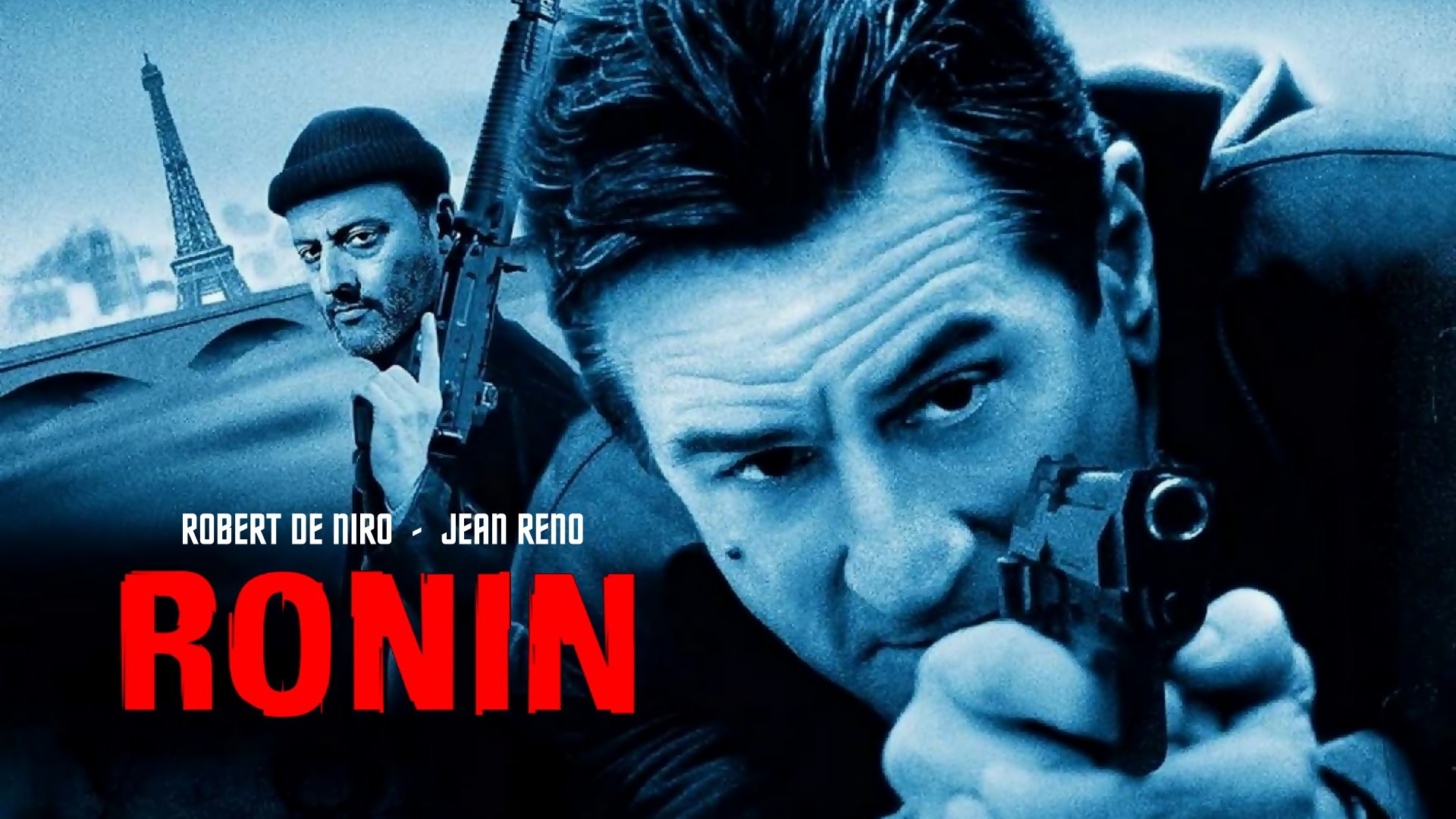
Ronin (1998), directed by John Frankenheimer, is a gritty, high-octane action thriller that has become a cult classic. Starring Robert De Niro, Jean Reno, Natascha McElhone, Stellan Skarsgård, and Sean Bean, the film is celebrated for its intricate plotting, intense performances, and some of the most realistic car chases ever captured on film.
The film’s title refers to masterless samurai, a metaphor for the main characters—mercenaries with no allegiance, hired to complete a dangerous mission. Set in the shadowy underworld of Europe, the story begins in Paris, where a group of operatives with diverse backgrounds and specialties are brought together by a mysterious woman, Deirdre (Natascha McElhone). Their mission: to retrieve a heavily guarded briefcase of unknown contents.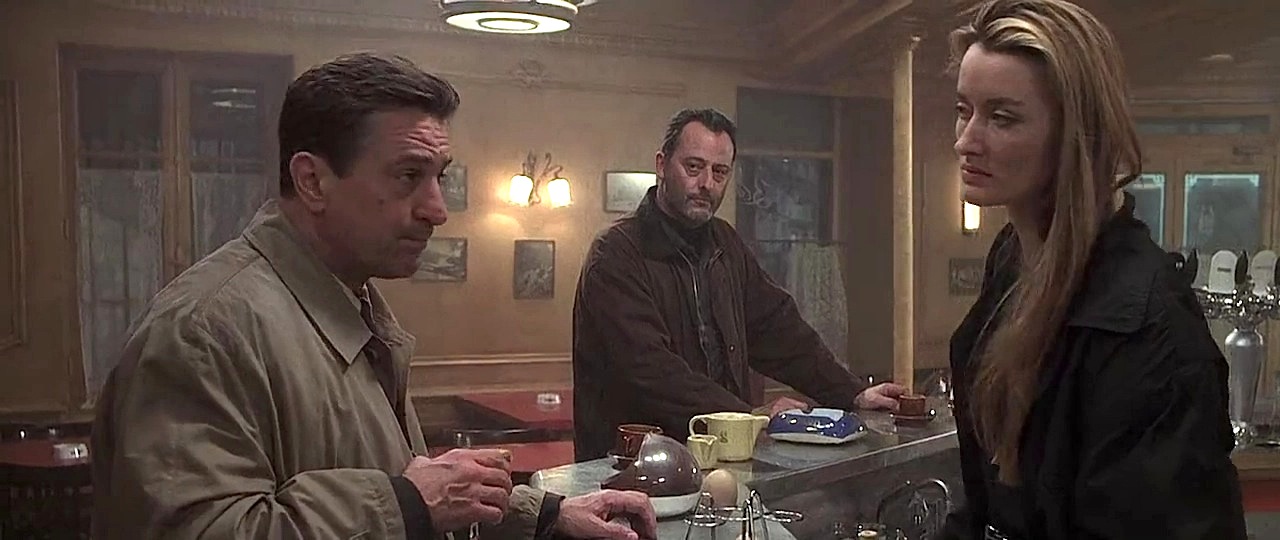
Sam (Robert De Niro), a former CIA operative, quickly emerges as the group’s pragmatic leader. He works alongside Vincent (Jean Reno), a seasoned and stoic Frenchman; Gregor (Stellan Skarsgård), a tech-savvy ex-KGB agent; and Spence (Sean Bean), a self-proclaimed weapons expert whose competence is soon called into question. As the team navigates double-crosses, shifting alliances, and brutal confrontations, they discover that the briefcase’s importance extends far beyond their immediate employers.
The standout element of Ronin is its exceptional action sequences, particularly the car chases through the streets of Nice and Paris. Frankenheimer, a veteran filmmaker with a passion for precision, insisted on practical effects, eschewing CGI for real vehicles and stunts. The result is breathtakingly tense and grounded, with tightly choreographed high-speed pursuits that have since become benchmarks for the genre.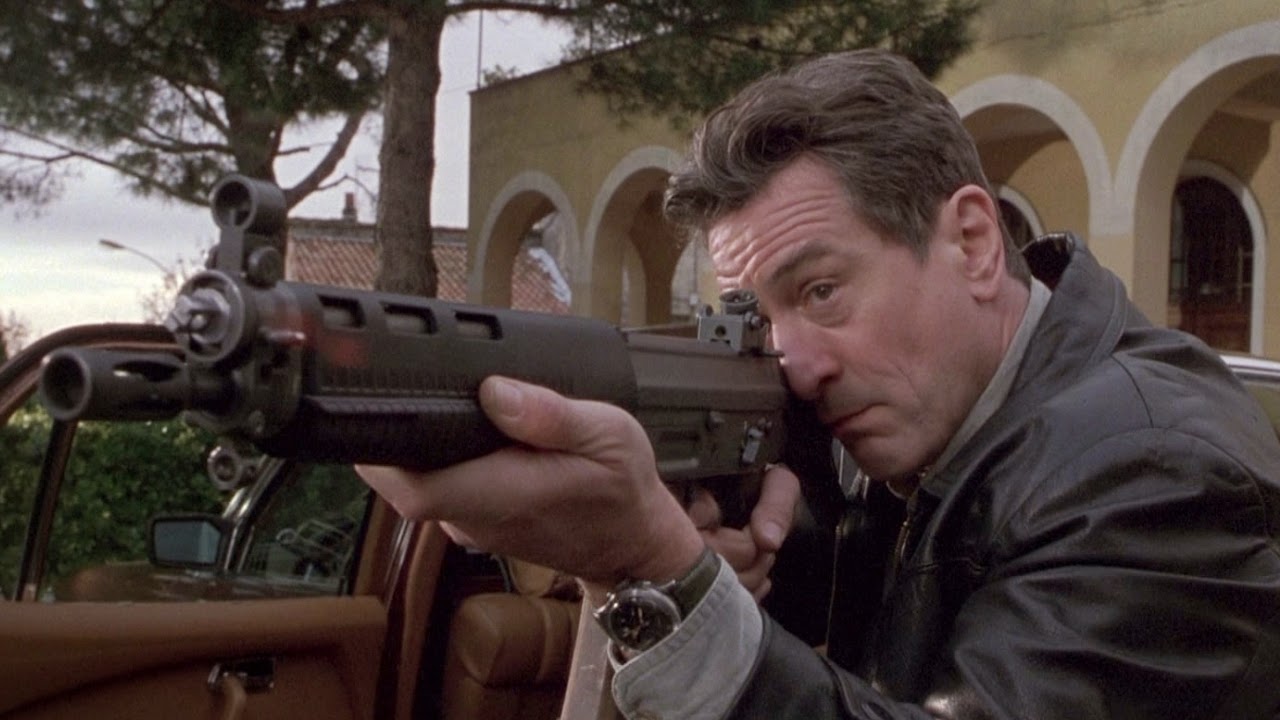
Robert De Niro anchors the film with his understated yet commanding portrayal of Sam, a man whose professionalism and moral compass set him apart in a world of shifting loyalties. Jean Reno complements him as Vincent, providing a quiet strength and camaraderie that adds emotional depth to the film. Natascha McElhone’s Deirdre is enigmatic and cold, her motives cloaked in secrecy, while Stellan Skarsgård delivers a chilling performance as Gregor, a wildcard in the volatile mix.
The screenplay, co-written by J.D. Zeik and David Mamet (credited under a pseudonym), is taut and layered, blending sharp dialogue with philosophical undertones about loyalty and honor. While the film avoids excessive exposition, its emphasis on ambiguity—particularly regarding the briefcase’s contents—has sparked endless debate and speculation among viewers.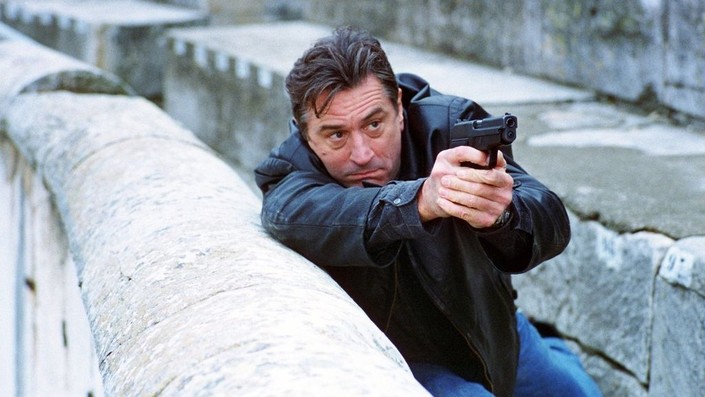
The cinematography by Robert Fraisse captures the gritty realism of the European locales, from shadowy alleyways to bustling city streets, enhancing the film’s moody, suspenseful atmosphere. Elia Cmiral’s score underscores the tension, with its subtle yet evocative compositions.
Ronin explores themes of trust, professionalism, and the blurred lines between morality and necessity in a post-Cold War world. Its characters, much like the titular samurai, grapple with their lack of allegiance, seeking purpose and redemption in an unforgiving landscape.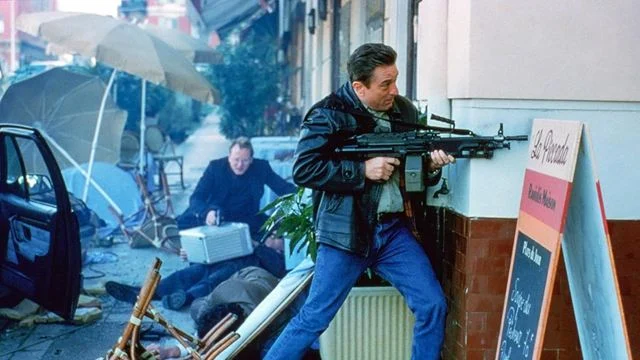
Critically acclaimed for its craftsmanship and intelligence, Ronin was lauded as a return to form for Frankenheimer. The film’s focus on practical effects and grounded storytelling has allowed it to age gracefully, maintaining its status as a favorite among action enthusiasts.
Ronin is a masterclass in tension and execution, blending cerebral intrigue with visceral action. Its combination of meticulous direction, stellar performances, and unforgettable set pieces cements it as a standout in the action-thriller genre and a film that continues to captivate audiences decades after its release.











